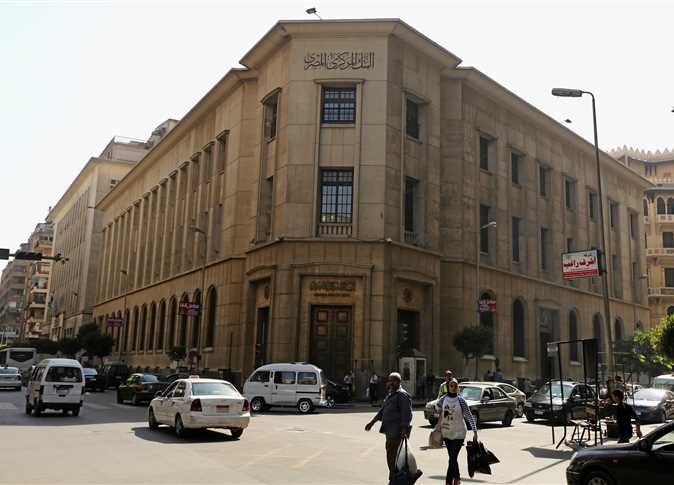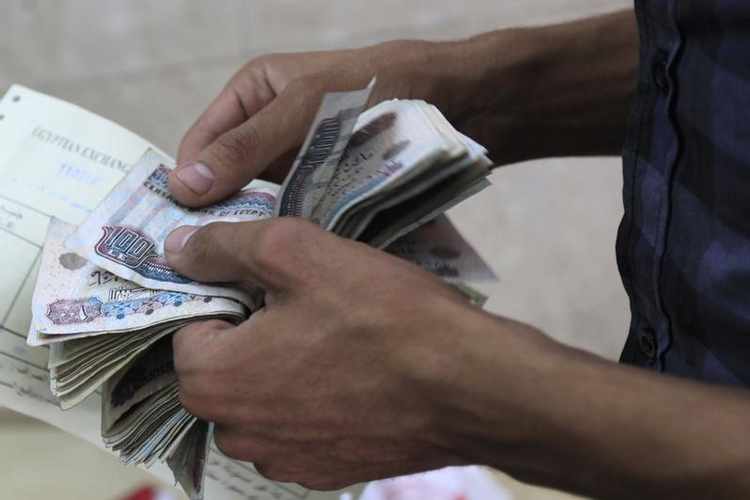
The Egyptian economy is tabled for slower growth as high inflation dogs consumers, analysts said.
"Inflation is above peers and is forecast to remain near 10 percent, with structural rigidities aggravated by exchange rate depreciation," credit ratings agency Fitch said in a report published on Friday.
Egyptians spend 40 percent of their income on food on average, according to a report released by the independent Egyptian Center for Economic Studies (ECES) on Dec. 14.
"The country is widely known to be the world’s largest importer of wheat, in an economy heavily dependent on foreign production. With the value of the Egyptian pound falling 11 percent since January, Egyptians have had to cough up more for foreign goods, and the market has reacted. Increasing food prices have been a key element driving annual inflation on the price of urban consumer goods up to 9.7 percent in October, the highest level in recent years," according to the report.
Growth is forecast at about 4 percent in 2015, up from 1.5 percent last year.
"Economic momentum has slowed recently due to shortages of foreign exchange and the impact of fiscal consolidation," according to Fitch. "Fitch assumes that growth will be weaker in 2016 and will average around 4 percent over 2016 and 2017."
But growth is weaker due to the downturn in Egypt’s non-oil private sector, which gathered momentum in November, according to a note published Dec. 7 by Jean-Paul Pigat, senior economist at Dubai-based bank Emirates NBD.
"Both output and new business fell sharply, leading business conditions to worsen at a marked pace. The respective rates of contraction were the quickest since September 2013. Moreover, the sector was weighed down by record declines in employment and stocks of purchases," Pigat asserted.
According to Pigat, a macro recovery will depend, in part, on the Egyptian authorities easing capital controls and allowing the Egyptian pound to weaken in 2016.
A recent fall in exports has also hurt growth.
"Exports have declined over the past two years by 19 percent, followed by a decline in the ratio of merchandise exports-to-imports to 36 percent in 2015 from 49 percent in 2010 and a deteriorating trade deficit to $39 billion from $25 billion over the same period," the ECES report read.
Tourism has also fallen off after a Russian passenger plane crashed in the Sinai Peninsula on Oct. 31. The incident — for which the terrorist Daesh group claimed responsibility — has already cost the national travel industry over $2 billion, according to Egyptian government statistics.
"The recent events come as a catastrophic development for the industry in Egypt," Nadejda Popova, senior travel analyst at Euromonitor International, warned in an email on Friday.
"This is going to have a very serious impact on the local economy, and, of course, on tourism, as the only pockets of safety in the country, in terms of tourism, are now compromised. Travellers will remain very hesitant to travel to this part of the Middle East," Popova said.
All these factors have combined to put pressure on the country’s hard currency reserves.
"Egypt’s international reserves dropped to critical levels recently and the Egyptian pound is under mounting pressure, culminating in a considerable increase in the current account deficit to $12 billion in 2014/15 from $3 billion in 2013/14. Over and above, foreign capital flows have been highly volatile," the ECES report noted.
Economists agree that economic reform is needed to help the Egyptian economy recover.
According to Fitch, improved economic growth should be supported by efforts to reform Egypt’s business environment with a view to increasing investment and employment.
The ratings agency said Egypt’s new parliament, which is set to meet at the end of December, enjoys broad support and should be able to enact the necessary reforms.
Fitch went on to note that Egypt had seen a sharp increase in foreign direct investment because the government sought to promote reforms.
However, according to ECES, measures to control inflation have so far been ineffective.
The government needs to make a major leap forward in terms of both credibility and security in order to cement investor confidence, the ECES report concluded.




